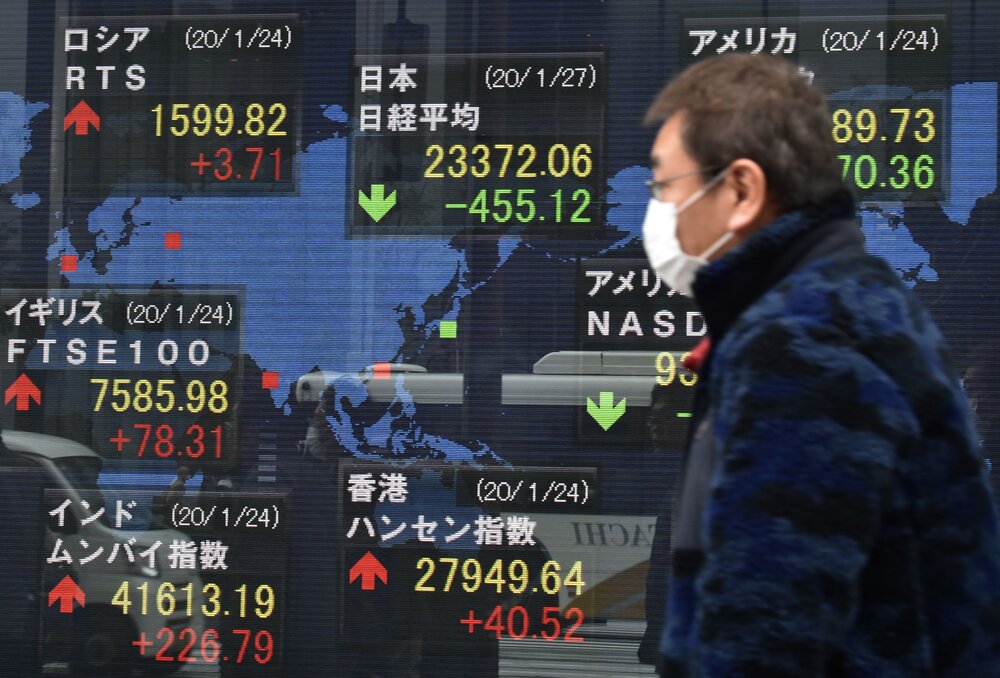Coronavirus spreading pessimism across oil markets

Fears over the spread of the Coronavirus continue to overshadow the oil market as the number of people sickened by the virus has exceeded 10,000 globally and the death toll in China has passed over 200.
Oil prices have plunged more than 21 percent from their highest in early January, to mark the worst start of the year in almost three decades.
Following the fast spread of the virus, the World Health Organization has declared the virus a public health emergency and that too has added fuel to the fire of worrisome in the markets all around the world.
Although uncertainty about the severity and duration of the virus outbreak makes it impossible to estimate its real impact on the global economy in long term, however, the psychological impacts combined with the short-term hit to the transportation and tourism sectors which are directly linked to the demand for refined products like jet fuel are already felt in the oil markets.
The fact, at the moment, is that the oil markets are unlikely to get back on solid ground in the near future unless signs of coronavirus being tethered emerge soon.
Coronavirus, the Chinese economy, and the world effect
China has been through similar scenarios in the past and has survived them. In 2003, the SARS (severe acute respiratory syndrome) outbreak resulted in a nearly two percent plunge in the country’s economic growth in that year’s first quarter, however after the virus was contained China recovered once again in the year’s last quarter.
This time, however, the situation is different. In 2003, SARS killed almost 800 people and spread over nearly 8000 worldwide, coronavirus contamination, on the other hand, has already exceeded 10,000 people worldwide.
We should not also forget that back in 2003, China’s GDP accounted only for 4 percent of the total global GDP, now the Asian country accounts for 17 percent of the world’s total gross domestic product, which means the impact would be much bigger.
Coronavirus and the black gold
After the United States and China signed an economic deal agreement in mid-January, world markets were moved on the expectations of an improving global economy this year, but once again the coronavirus has changed all the equations.
According to Reuters, analysts and traders believe that the coronavirus outbreak in China could cut oil demand in the country by over 250,000 barrels per day (bpd) in the first quarter of this year.
S&P Global Platts Analytics, on the other hand, believes that the virus outbreak is going to cut the global oil demand by at least 900,000 bpd in February and 650,000 bpd in March, which would be a much greater impact.
The virus, however, has already impacted the performance of the refineries in China and some Asian counties. As reported by Reuters, Chinese refinery activity fell by 15 percent last week.
The decline in refinery activity will inevitably lead to lower demand for crude oil, at least in the short term. Morgan Stanley analysts said in a note that the coronavirus’’ major blow will be to the refinery’s oil demand.
The plunge in transportation and consequently the demand for refined fuels has led to a decline in the profit margins of the refineries, so it can be expected that, in the long run, the demand for crude oil will also be affected as a secondary effect.
Oil demand and OPEC cuts
The expectation regarding the impact of the coronavirus on the global oil demand has also startled the Organization of Petroleum Exporting Countries (OPEC) and its allies like Russia which have been trying to keep the market stable in the face of the already low demand and high supply.
Some reports have been released in recent days which indicate that OPEC and allies are considering a sooner-than-schedule meeting to discuss the impacts of the virus outbreak and explore ways for mitigating such impacts.
Russian Energy Minister Alexander Novak said on Friday that OPEC+ could discuss moving its upcoming meeting forward.
Novak, however, indicated that the group is still cautious and does not intend to act on impulse, saying they needed to wait a few more days to monitor the situation.
"We can meet earlier, it's not a problem. We can meet very quickly if necessary. We can even reschedule the meeting. We have discussed it; we are ready to move it. But regarding timeframes and dates, we are in the discussion stage, based on an assessment of the situation," Novak told reporters in Almaty, Kazakhstan.
It should, however, be borne in mind that even if OPEC+ decides to further curb production in order to relieve the impact of the virus outbreak, the effects of such a decision are not going to be felt in the market immediately and any OPEC+ decision will be seen upon April shipments.
Last thoughts
Although oil experts and analysts’ estimations of the impact of the coronavirus outbreak on the global oil market are not similar, they are all in accord regarding the negative impact of the incident on the markets.
The recent fall in the oil prices could be attributed to the psychological aspects of the news and the worrisome which was spread over the markets along with the news of the virus.
From now on, however, any improvement or deterioration in the situation on the global scale could be a determining factor for the magnitude of the real impact which the coronavirus could be leaving behind on the global economy.
EF/MA
Leave a Comment